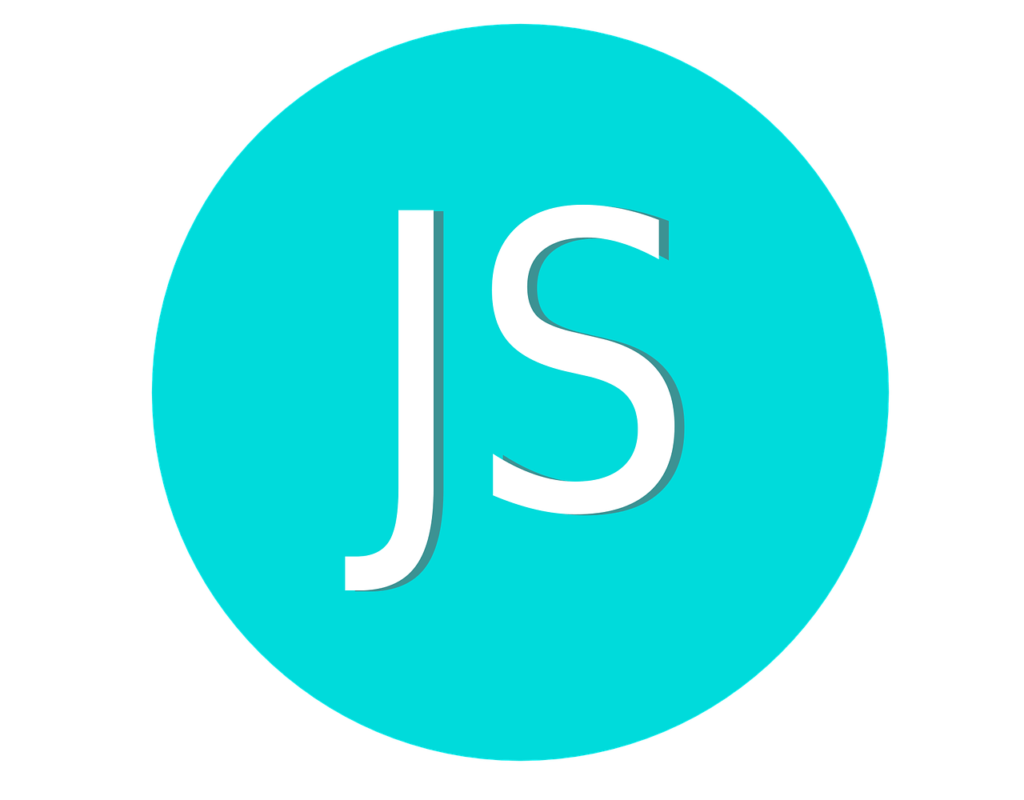Discover the Best Scripting Language for Game Development
Let’s dive into the world of game development and uncover the scripting languages that make our favorite games come to life. In this article, we’ll explore various popular options, shedding light on their strengths and how they fit different types of projects. By understanding the key features and benefits of each language, we’ll be better equipped to choose the best one for our game development journey. Whether we’re hobbyists or aspiring professionals, this guide will help us make an informed decision and bring our gaming ideas to fruition. Have you ever wondered what the best scripting language for game development is? With numerous options available and each boasting its own set of features and advantages, selecting the right one for our projects can be a daunting task. Whether we are game development veterans or novices just dipping our toes into the world of coding, making an informed choice is crucial.
Introduction
Game development is a complex, multifaceted field that relies heavily on the efficiency and capabilities of scripting languages. These languages enable us to create interactive gameplay experiences, develop game mechanics, and shape the narrative flow. But with so many choices available, how do we determine which scripting language reigns supreme for game development? In this article, we’ll dive deep into the top scripting languages used in the industry, comparing their pros and cons to help us make an informed decision.

Understanding Scripting Languages in Game Development
A scripting language allows us to control the behavior of game elements without altering the game’s core engine. These languages are often higher-level than system programming languages, enabling quicker iteration and ease of understanding and use.
Why Scripting Languages?
Scripting languages excel in game development due to their flexibility and simplicity. They allow us to implement complex functionalities without getting bogged down in low-level programming details. Moreover, scripting languages tend to have shorter development cycles, which can be a significant advantage in the fast-paced game development industry.
Key Features to Look For
When selecting a scripting language for game development, it’s essential to consider:
- Ease of Use: The language should be easy to learn and use, enabling us to focus on creativity rather than syntax.
- Performance: High performance is crucial for real-time applications such as games.
- Community and Support: A robust community and wide range of resources can help us troubleshoot issues and learn from others.
- Integration: The language should integrate seamlessly with game engines and other development tools we are planning to use.

Top Scripting Languages for Game Development
Let’s take a closer look at some of the most popular scripting languages in the game development industry.
1. C#
C# is a versatile and powerful language that excels in game development. Renowned for its ease of use and robust feature set, it is the scripting language of choice for Unity3D, one of the most popular game engines.
Pros of C#
- Ease of Learning: C# syntax is clean and easy to understand, making it a good choice for beginners.
- Performance: While not as fast as C++, it offers reasonable performance suitable for most game types.
- Strong Community: With Unity’s popularity, C# has a vast community and many resources.
- Integration: Seamlessly integrates with Unity3D and other Microsoft technologies.
Cons of C#
- Memory Management: Higher-level memory management may not provide as much control as lower-level languages.
- Startup Overhead: Higher startup times and larger memory footprint can be an issue for mobile and lightweight games.
| Feature | Description |
|---|---|
| Ease of Use | Clean syntax, beginner-friendly |
| Performance | Reasonable, though not as fast as lower-level languages |
| Community Support | Strong, especially within Unity3D frameworks |
| Integration | Excellent with Unity3D |
2. JavaScript
JavaScript has transcended its web development origins and found a strong foothold in game development, thanks to engines like Phaser and Babylon.js.
Pros of JavaScript
- Ease of Learning: JavaScript is known for its straightforward syntax and widespread use.
- Performance: Adequate for most 2D and simpler 3D games.
- Flexibility: Can be used both for game logic and for rendering graphics via HTML5 Canvas.
- Community and Resources: Extensive resources and active community support augment learning and troubleshooting.
Cons of JavaScript
- Performance Limitations: Not suited for highly complex, high-performance 3D games.
- Security: Being primarily a web language, it can be prone to security vulnerabilities.
- Tooling and Debugging: While improving, the tools for game development are not as mature as in other languages.
| Feature | Description |
|---|---|
| Ease of Use | High, with straightforward syntax |
| Performance | Adequate for 2D and simpler 3D games, but not high-end 3D |
| Community Support | Extensive, with many resources available |
| Integration | Excellent for web-based games, good for others via various engines |
3. Python
Python’s simplicity and readability make it a great choice for beginner and prototyping game development. Pygame, an open-source library, is widely used for game creation in Python.
Pros of Python
- Ease of Learning: Python’s syntax is easy to understand, excellent for beginners.
- Productivity: Allows for rapid development and prototyping.
- Extensive Libraries: Numerous libraries to accomplish tasks quickly.
Cons of Python
- Performance: Often slower than other languages due to being interpreted.
- Integration: Limited compared to other languages used in game engines.
- Memory Management: Less control over memory management, which can be critical in high-performance games.
| Feature | Description |
|---|---|
| Ease of Use | Very high, extremely readable syntax |
| Performance | Slower compared to compiled languages |
| Community Support | Strong, especially for educational purposes |
| Integration | Limited in mainstream game engines |
4. Lua
Lua is a lightweight, multi-paradigm scripting language that is easily embedded into applications. The language is particularly favored for its performance and ease of embedding, often seen in games like World of Warcraft and Angry Birds.
Pros of Lua
- Performance: High performance suitable for real-time applications.
- Ease of Embedding: Easily integrated into existing engines and frameworks.
- Memory Usage: Efficient memory management which is crucial for gaming.
Cons of Lua
- Learning Curve: Can be less intuitive for beginners compared to other languages.
- Community and Resources: Smaller community and fewer resources compared to giants like Python or JavaScript.
- Debugging Tools: Less sophisticated debugging and development tools.
| Feature | Description |
|---|---|
| Ease of Use | Moderate, some learning curve for beginners |
| Performance | High, suitable for high-performance games |
| Community Support | Smaller, but dedicated community |
| Integration | Excellent embeddability, widely used in various engines |
5. UnrealScript
Though deprecated in favor of Blueprints and C++ in Unreal Engine 4, UnrealScript was once the primary scripting language of Unreal Engine 3. Its contributions to game development are still noteworthy.
Pros of UnrealScript
- Integration: Seamless integration with Unreal Engine 3.
- Functionality: Powerful scripting capabilities for creating complex game mechanics.
- Community: Large and active community for support during its active time.
Cons of UnrealScript
- Obsolescence: No longer supported in Unreal Engine 4 and beyond.
- Learning Curve: More complex than alternatives due to its similarity to C++.
- Performance: Moderate, as it was an interpreted language.
| Feature | Description |
|---|---|
| Ease of Use | Moderate, somewhat steep learning curve |
| Performance | Moderate, being an interpreted language. |
| Community Support | Historically strong, but diminished due to deprecation |
| Integration | Excellent with Unreal Engine 3 |
6. Java
Java is a seasoned language known for its portability and extensive libraries. While not as dominant as it is in web and enterprise development, it has seen its share of use in game development.
Pros of Java
- Portability: Platform independence enabled by the Java Virtual Machine.
- Libraries and Frameworks: Extensive set of libraries and strong ecosystem, including game-development focused frameworks like LibGDX.
- Community: Large, active community providing abundant resources.
Cons of Java
- Performance: Generally slower than C++ due to JVM overhead.
- Memory Management: Automatic garbage collection may introduce latency spikes.
- Game Development Ecosystem: Slightly less focus and fewer specialized tools compared to languages like C#.
| Feature | Description |
|---|---|
| Ease of Use | Moderate, familiar to those with programming experience |
| Performance | Generally moderate, with JVM overhead |
| Community Support | Large and active |
| Integration | Good, with frameworks like LibGDX |
7. Swift
Swift, developed by Apple, is primarily used for iOS and macOS development. However, it has capabilities that make it suitable for game development on those platforms.
Pros of Swift
- Performance: High performance suitable for game development.
- Syntax: Modern, clean syntax easy to read and write.
- Integration with Apple Ecosystem: Seamless integration with Apple tools and APIs.
Cons of Swift
- Platform Limitation: Primarily for iOS and macOS development.
- Community: Smaller community focused mainly on mobile and app development.
- Resources: Limited game development resources compared to more established languages.
| Feature | Description |
|---|---|
| Ease of Use | High, modern and clean syntax |
| Performance | High, suitable for resource-intensive games |
| Community Support | Moderate, mostly focused on app development |
| Integration | Excellent with Apple ecosystem |

Conclusion
Choosing the best scripting language for game development depends on our specific needs, preferences, and the nature of the game project. Here’s a quick recap to make our decision easier:
| Language | Best For | Key Attributes |
|---|---|---|
| C# | Unity3D projects | Ease of use, strong community, good integration |
| JavaScript | Web-based games | Flexibility, widespread use, strong community |
| Python | Beginner projects, rapid prototyping | Ease of use, productivity, extensive libraries |
| Lua | Embedded scripting, performance-critical games | High performance, efficient memory management |
| UnrealScript | Historical reference for Unreal Engine 3 games | Powerful functionality, seamless integration (deprecated) |
| Java | Cross-platform compatibility | Portability, extensive libraries, large community |
| Swift | iOS and macOS game development | High performance, modern syntax, Apple integration |
By considering the strengths and weaknesses of each language, we can find the one that best suits our game development needs. Remember, there is no one-size-fits-all solution; the best choice will always align with our project goals and personal preferences. Happy coding!




